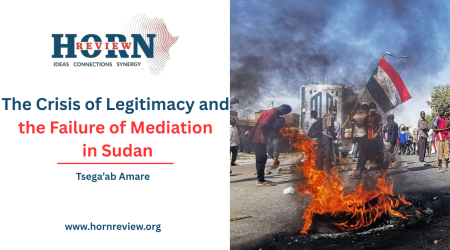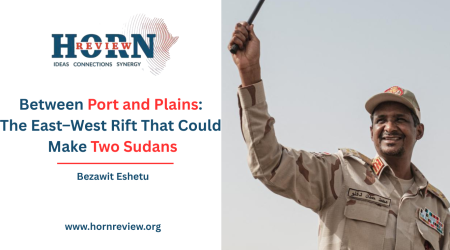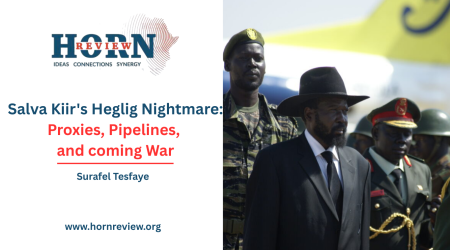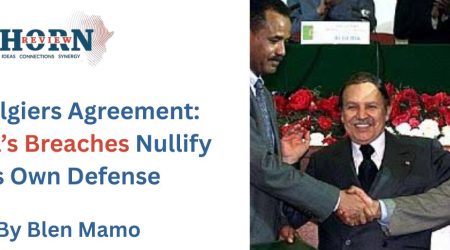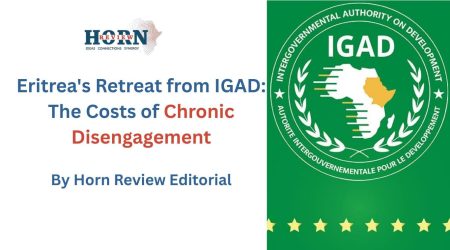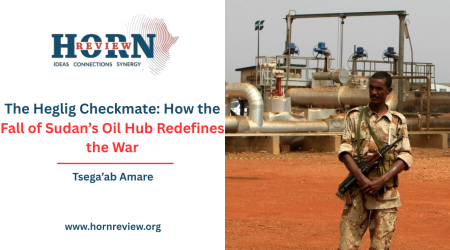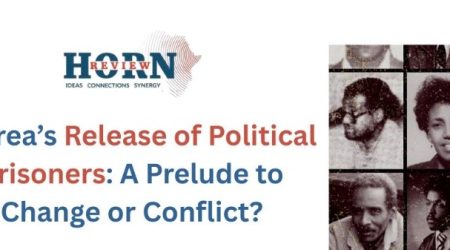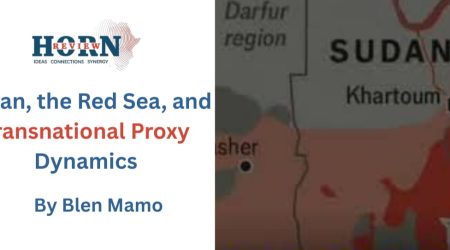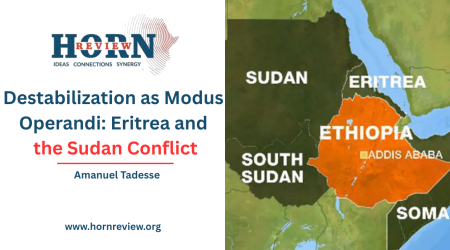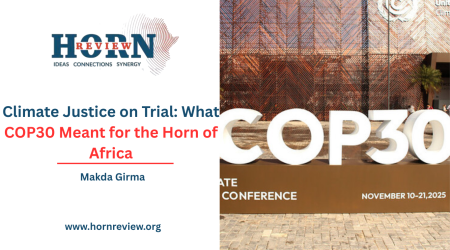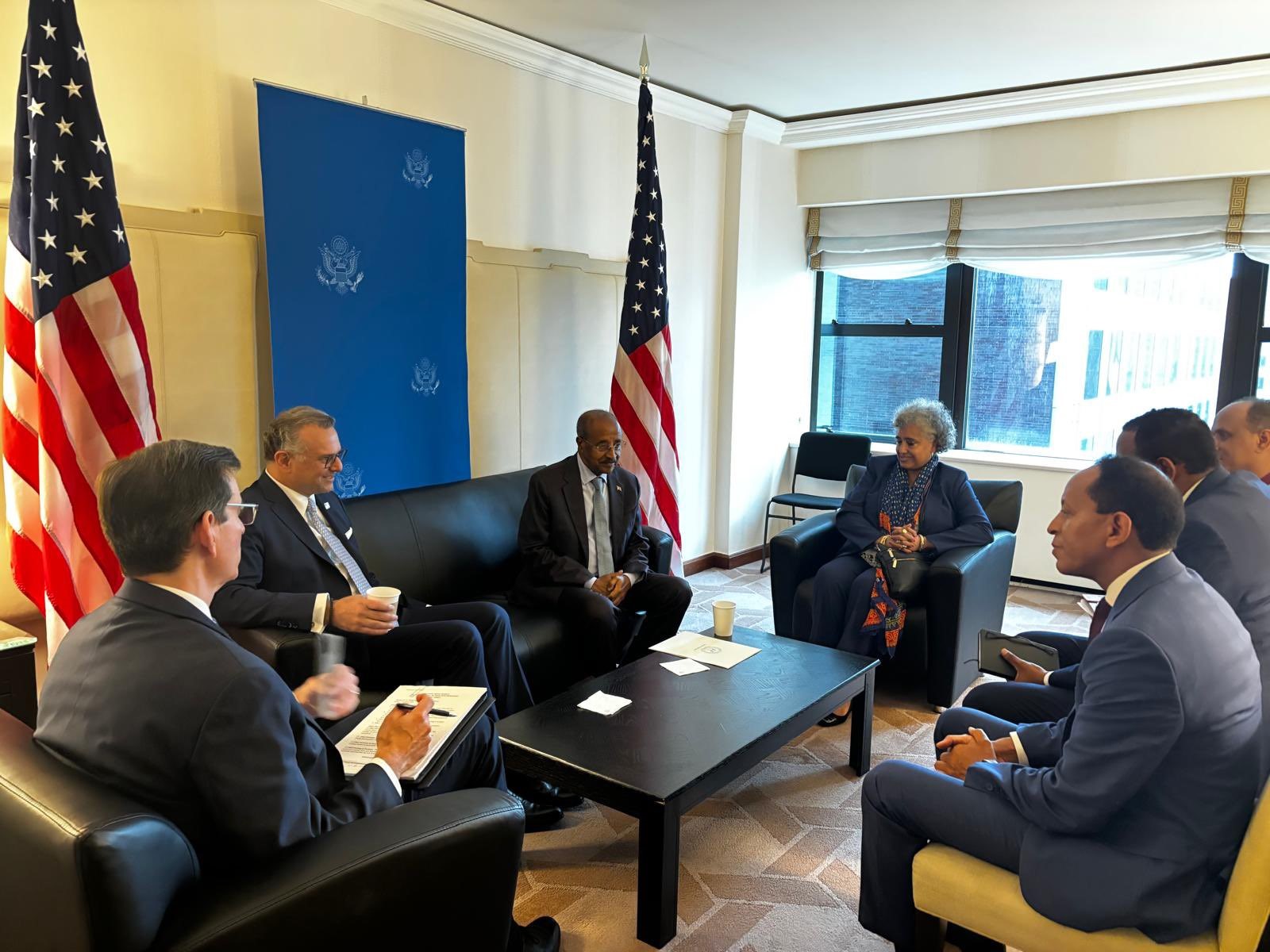
29
Sep
Asmara’s Reset? Eritrea’s Overtures To The West And The Boundaries Of Relevance
The question of Eritrea’s place in the international order continues to resurface with each shift in the geopolitical landscape of the Horn of Africa region. For decades, the relationship between Asmara and the Western world has been shaped by fleeting moments of alignment, followed by deep periods of rupture. Today, against a backdrop of Ethiopia’s evolving foreign policy posture, the growing competition between global powers, and heightened anxieties over the Red Sea, Eritrea seems to have begun to present itself as a partner to Western capitals. Its leaders have secured a new audience for their alarmist diplomacy, and they sense the possibility of a recalibration. Still, Eritrea’s value remains narrowly defined. Its modest diplomatic weight, the rigidity of its regime, and the enduring centrality of Ethiopia all shape the boundaries of what Asmara can achieve in its overtures to the West.
The history of Western engagement with Eritrea is tied inextricably to the question of secession. In the years leading up to Eritrea’s break from Ethiopia, the Eritrean People’s Liberation Front (EPLF) propagated an image of self-reliance and determination that resonated with some external actors. However, the decisive factors behind the ease with which legal and diplomatic barriers to secession were overcome had less to do with the EPLF’s own diplomatic skill than with the unique convergence of Ethiopian consent and Western optimism. The London conference set the stage for Eritrea’s formal secession, but the process moved forward because the Ethiopian People’s Revolutionary Democratic Front (EPRDF) under Meles Zenawi agreed to it, and because Western powers were willing to extend political backing to the EPLF in its state-building project. The post-Cold War context reinforced this orientation: the West, confident in its global dominance, imposed conditionalities with conviction, while Ethiopia under Prime Minister Meles positioned itself as a responsible partner. Eritrea, on the other hand, soon revealed its governance character under Isaias Afewerki, whose authoritarianism and confrontational posture clashed with Western expectations. Isolation followed swiftly, made easier by Ethiopia’s alignment with Western priorities and by Asmara’s own aggressive conduct in the region.
To understand how this dynamic unfolded, one must situate Eritrea within a longer arc of its relations with global powers. During the Haile Selassie era, Ethiopia’s strategy was formally non-aligned, yet it enjoyed strong ties with the United States and Israel. This alliance provided Addis Ababa with security and economic benefits, while the emperor also sought to balance relations with Arab states, many of whom supported Eritrean rebels as leverage against Ethiopian influence. The period of the Derg marked a stark shift. Mengistu Haile Mariam’s government alienated Washington through its brutality and through its own frustration with what its perceived as American caution. The Carter administration’s policy of détente further constrained US engagement in the Horn of Africa. Consequently, Mengistu turned to the Soviet Union, embedding Ethiopia within the socialist camp. Many Ethiopian scholars contend that this geopolitical realignment indirectly strengthened the EPLF, which, despite its rhetoric of self-reliance, is believed to have received covert support from Western intelligence agencies eager to weaken a Soviet-aligned regime.
With the end of the Cold War, Ethiopia, under the EPRDF, anchored itself in the liberal international order and embraced Western partnerships, while Eritrea charted a divergent course. The EPRDF government was integrated into donor frameworks and secured recognition as a reliable interlocutor, which in turn allowed Addis Ababa to play an active role in shaping the region’s security environment. Eritrea, by contrast, became increasingly marginalized. The regime’s unwillingness to integrate into the international community, coupled with its confrontational regional posture, cemented its isolation. Ethiopia’s success in maintaining strong ties with Western states accentuated the contrast, and the divergence between Addis Ababa’s integration and Asmara’s estrangement defined the early decades after Eritrea’s secession.
The present moment, however, looks different. Two overlapping shifts have opened space for Eritrea to claim renewed attention. First, Ethiopia itself has undergone a transformation in its foreign policy doctrine. The federal government’s confrontation with the Tigray People’s Liberation Front (TPLF) generated a sharp rupture with Western partners, who adopted a critical stance that Ethiopian leaders judged to be disproportionately harsh. This experience fostered a recalibration in Addis Ababa’s external relations, reviving a strategy reminiscent of Haile Selassie’s balancing act. Ethiopia now emphasizes diversified partnerships and an approach aligned with the ethos of the non-aligned movement. It continues to work with Western states, such as France, but the relationship no longer carries the depth of alliance. At the same time, Somalia, Sudan, and Djibouti have pursued deeper ties with middle powers, ranging from Turkey to China to the Gulf. The result is a region less tethered to Western influence and more entangled in multipolar competition.
The second shift is global. Western powers themselves have lost the unchallenged leverage they exercised in the 1990s. The Russian invasion of Ukraine, the intensification of US–China rivalry, and the impact of Donald Trump’s foreign policy choices have all weakened transatlantic cohesion and reduced the ability of Western actors to enforce ideological doctrines abroad. In this unsettled landscape, Europe in particular has grown increasingly alarmed over the Red Sea, which serves as its major maritime route. The civil war in Sudan, the disruptive role of the Houthis, and the contested future of Ethiopian access to maritime routes have combined to elevate the urgency of securing reliable influence along the Red Sea coast.
It is in this context that Eritrea has attempted a diplomatic reset. At the 80th United Nations General Assembly, Eritrean Foreign Minister Osman Saleh held two significant meetings with Western officials. With Annette Weber, the European Union’s Special Representative for the Horn of Africa, discussions surely included European concerns in the Red Sea. Weber’s meeting with Asmara is perhaps a signal that Europe is recalibrating its approach, engaging Eritrea without tying dialogue to reforms of its authoritarian system. The calculations are driven less by optimism about Eritrea’s internal trajectory and more by strategic anxieties. Europe sees Ethiopia drifting from its orbit, perceives Russia’s influence expanding, and confronts acute vulnerabilities in Red Sea security. Eritrea, through alarmist rhetoric over Ethiopia’s maritime ambitions, has managed to present itself as a partner able to provide the space for Brussels to address its concerns. Europeans appear willing, at least rhetorically, to listen.
The encounter with Massad Boulos, the Senior White House advisor for Africa, revealed parallel dynamics. Eritrea had articulated a plan for resetting relations with the United States, though it has so far yielded little substantive progress. At present, Washington’s openness to dialogue appears to rest on two considerations: the growing diversification of Ethiopia’s partnerships, which complicates American leverage in Addis Ababa, and the Red Sea question, which Eritrea has consistently elevated in its diplomatic messaging. Asmara’s warnings have resonated enough to secure an audience, even if they fall short of producing tangible concessions. The Trump administration’s transactional approach to foreign policy further conditions this environment. From Washington’s perspective, Eritrea’s authoritarianism is less significant if the regime can offer something of value, and whether it can solve its growing tension with Ethiopia. The central uncertainty lies in whether Eritrea possesses any meaningful assets beyond geography, and whether its authoritarian rigidity allows for sustainable cooperation.
For Eritrea, these developments revive the possibility of breaking free from prolonged isolation. Yet the structural limits remain stark. The ruling party, rooted in the EPLF’s history, has cultivated an ideological hostility toward the West, reinforced by decades of punitive measures and isolation. President Isaias Afewerki openly advocates a multipolar order under Russian leadership, underscored by his visit to Moscow in 2023 and his statement to President Putin. This orientation clashes with the very engagement Eritrea seeks, leaving its diplomatic posture contradictory and fragile. Moreover, Ethiopia’s position continues to overshadow all calculations. Addis Ababa remains the far larger prize for global powers, whether in relation to China, Russia, or Western states. However much Eritrea seeks to insert itself into regional equations, its relevance cannot be divorced from Ethiopia’s trajectory.
The broader dynamics of the region reinforce this reality. Somalia is ever more closely linked with Turkey, Djibouti deepens economic ties with China while welcoming Gulf investments, and Sudan government cultivates relations with a spectrum of external actors, including Turkey and Iran. Eritrea, in contrast, projects alarmism, positioning itself as a coastal asset amid regional turbulence. Yet the regime’s authoritarian rigidity, limited economic capacity, and history of confrontational behaviour constrain its ability to transform diplomatic openings into durable partnerships.
The dynamics unfolding at present are therefore less about a fundamental reorientation of Western policy and more about a cautious willingness to hear Asmara’s case. Eritrea has managed to secure attention, but its intrinsic limitations persist. The most likely outcome is that Asmara remains peripheral, its leverage drawn narrowly from geography and its relevance perpetually contingent on Ethiopia’s posture. The cycle of alarmism and fleeting engagement will likely continue, keeping Eritrea in a position of constrained value within the shifting order of the region.
By Mahder Nesibu, Researcher, Horn Review

